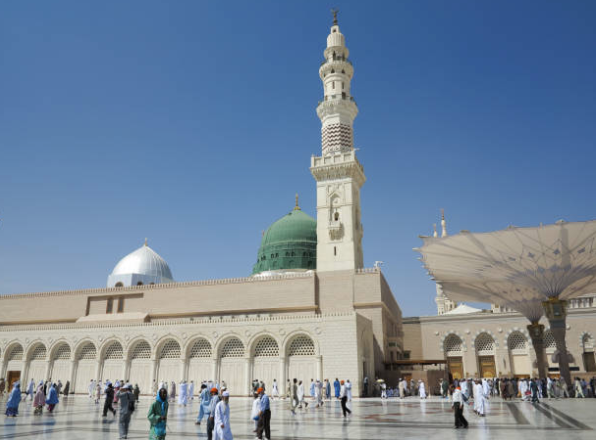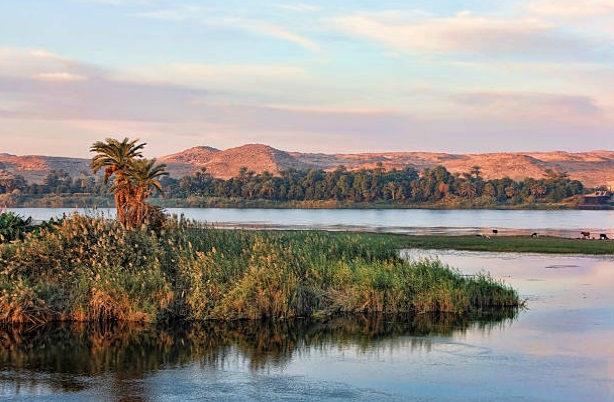 God talks in the most glowing of terms about all of His Prophets, peace be upon them all. However, there is a certain way that God mentions Prophet Muhammad, may the mercy and blessings of God be upon him. He is mentioned in a way that is different from all else, in spite of his name only being mentioned four times. So how does God talk about the Prophet?
God talks in the most glowing of terms about all of His Prophets, peace be upon them all. However, there is a certain way that God mentions Prophet Muhammad, may the mercy and blessings of God be upon him. He is mentioned in a way that is different from all else, in spite of his name only being mentioned four times. So how does God talk about the Prophet?Mercy to the Universe
The first that comes to mind is this oft-quoted verse of the Quran: "And we have not sent you except as a Mercy to the Universe." (Quran 21:107) It is among the highest of praise ever given to a human being. God has named Himself as the Most Merciful, and He has named His most beloved slave a mercy to the universe. This summarizes what the Prophet brought to this world—mercy—and what his mission promises in the hereafter—mercy again.
The highest standard of character
Another unbelievable praise that God makes about the Prophet, peace be upon him, comes in one of the earliest surahs (chapters) in the Quran. While people called him mad and questioned his intelligence and motives, God consoled him. The Quran says: "And you are on the highest standard of character." (Quran 68:4)—an emphatic verse signifying how the Prophet was destined to be the best human being ever to live on Earth.
He was on the highest standard of character—the most virtuous, the most patient, the most loving, the most courteous, the most merciful among men, the best to his wife, the best to his friends, the best to his family, honest, trustworthy, and so much more. Even his enemies testified to it. His character was of such a level that God Himself mentioned of its greatness.
He looked up, and a verse was revealed
When the Prophet first moved to Madinah, the qiblah (direction of prayer) was still towards Jerusalem and not towards Makkah. The Prophet found it hard to turn his back on the Kabah as he prayed. One day he looked up to the sky. He didn’t make a dua (supplication) or a request, he just looked up. God not only responded to what his heart sought, but mentioned it in the Quran. God is openly declaring His love for the Prophet in His book.
"We have certainly seen the turning of your face, towards the sky, and We will surely turn you to a qiblah with which you will be pleased. So turn your face towards the Sacred Mosque. And wherever you [believers] are, turn your faces towards it [in prayer]. Indeed, those who have been given the Scripture well know that it is the truth from their Lord. And God is not unaware of what they do." (Quran 2:144)
God consoles him
Multiple times when the Prophet was distressed, sad, or affected by the death of a near relation, God sent down verses to console him. Numerous surahs like Surah Duha, Surah Taha, Surah Yusuf, Surah Sharh, Surah Maryam, etc. were revealed specifically to soothe his heart. Such was the honor of the Prophet, that his heart was soothed by God’s own words from above the seven heavens.
He never calls him by name
Among the marvels of the Quran is how God never addressed the prophet directly as Ya Muhammad (O Muhammad) like he does multiple times for other prophets like David, Moses, Zechariah, etc. Rather God uses terms of endearment, such as "O you who is a Prophet", "O you who wraps himself", "O you who covers himself," etc. Out of honor to the Prophet, he is never called by his own name but only by various titles and by his states which show how much God cares about him.
Defends his family and followers
God defends the Prophet from false accusations multiple times in the Quran, but not only that, He also defends and mentions his family and friends. There are passages in the Quran directed at his wives, with the honorable term of "Mothers of the believers." His adopted son Zayd was mentioned by name. When some people spread rumors about Aishah, may God be pleased with her, God responded to their accusations by revealing Surah Noor, in which over 20 verses are sent to defend Aisha.
These are just a few examples of how God defended His Prophet and our Prophet Muhammad, peace and blessings be upon him. The Prophet was a guiding light for all of us, and the more we know about him, the more we will love him. Let us strive to learn more of the Quran and more about our Prophet. -islamreligion.com



 It is generally accepted that this chapter was revealed directly after chapter thirty-nine. Thus, it was revealed in Mecca and is one of the chapters that examine the fundamentals of faith. It reminds us of God’s signs and favors and gives glimpses from the story of Moses and Pharaoh with life-changing lessons for us. It also provides reassurance to Prophet Muhammad, may the mercy and blessings of God be upon him.
It is generally accepted that this chapter was revealed directly after chapter thirty-nine. Thus, it was revealed in Mecca and is one of the chapters that examine the fundamentals of faith. It reminds us of God’s signs and favors and gives glimpses from the story of Moses and Pharaoh with life-changing lessons for us. It also provides reassurance to Prophet Muhammad, may the mercy and blessings of God be upon him.